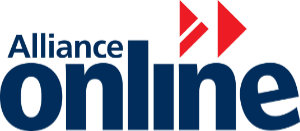What is Natasha’s Law
The law comes in the form of an amendment to the Food Information Regulations 2019 with the change stating that all food manufacturing businesses in England must clearly label all foods packed and produced on their premises with a complete list of ingredients – emphasising any allergens. The following fourteen allergens need to be specifically highlighted in any labelling:
- Celery
- Cereals containing gluten
- Crustaceans
- Eggs
- Fish
- Milk
- Lupin
- Molluscs (including oysters and mussels)
- Mustard
- Sesame
- Peanuts
- Soybeans
- Sulphur dioxide and sulphites (for concentrations above ten parts per million)
- Tree nuts
At present this amendment is limited to just businesses based in England but it is expected that Scotland, Wales and Northern Ireland will look to adopt the law too and includes businesses offering pre-prepared food-to-go.
The law came about and was so named following the tragic death of Natasha Ednan-Laperouse who passed away following a severe allergic reaction to sesame seeds which had been baked into the bread of the pre-prepared sandwich she bought. Due to the packaging containing no allergen or ingredient information she had assumed it was safe for her to consume.
What does your business need to do next?
If you are a business who produces packaged food, you need to consider the following:
Check your supply chain
Make sure you trace your ingredients back to their source so you can fully understand all processes they have been through. This will inform you what ingredients may have been used in the production / manufacturing of them to the point of arrival at your premises. This means you can detail exactly what ingredients you are putting in your pre-packaged food.
Staff awareness and training
This should be a twofold process with the starting point being some form of training whether it be a seminar, informative video or individuals coming and talking to your employees. It should highlight the importance and potential severity of improper labelling and allergen awareness. The next part should then focus on their tracking of ingredients they are using.
Teaching or implementing a system which will allow staff to simply and effectively track and showcase what is in every meal they prepare is paramount. As such batch preparation is more important now not just for speed and efficiency as per its initial use but for preventative cross-contamination. Batch preparing packaged food allows staff to concentrate on one dish and means that the only ingredients needed out on work tops and prep areas are the ones being used. As such, this helps to prevent cross-contamination and helps staff visually see everything that has been used meaning mislabelling is minimised.
Utilise technology
One way to effectively ensure your business labels it’s food produce with the relevant information is by embracing technology. One example is Daymark’s MenuPilot system. It is made up of a tablet, a Bluetooth printer and labels. It also provides the software needed to produce thermal labels (meaning no ink, ribbons or mess) which can be personalised with your logo for easy application to any to-go meals you prepare.

With the tablet being wireless, labels can be printed from anywhere making it simple to use from any location on site. Furthermore, the system can assign bold lettering to allergen ingredients to ensure customers can easily spot potential allergic reaction inducing ingredients within any of your meals.
Allergic reactions and intolerances range from mild to very severe, but all allergens need to be clearly stated on any pre-prepared meals from October 2021 in England. This is not a suggestion, but a legal requirement so ensure your business is ready when this life saving amendment comes into effect. For more information on the MenuPilot system please contact us at response@alliancenational.co.uk.


